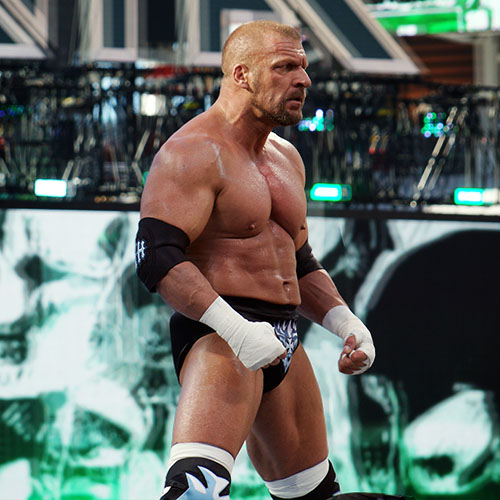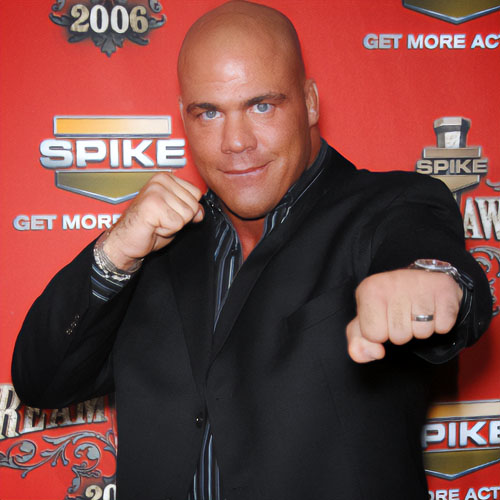For the first time, Grand Prix superstar Al Unser, Jr., talks openly about love and danger and competition, and what it’s been like running wheel to wheel at 200 m.p.h. against his own dad.
America’s Fastest Family
Whether at Indianapolis, Long Beach, or the Meadowlands Grand Prix, wherever auto-racing mavens congregate, there is little difference of opinion on the subject of Al Unser, Jr. He is almost universally regarded as the best of the “new generation” of drivers. At 27, he has already competed in almost every venue of motor sport America has to offer, working his way up from go-carts and Outlaw sprint cars to win the National SuperVee and Can-Am Championships, and indeed, he finished second in the CART Indy Car Championship by the close of his third full season. He has also won the prestigious 24-Hour Daytona for world-class sports cars, driving an outdated Porsche 962 with LeMans winners Derek Bell and Al Holbert, and has twice captured the International Race of Champions (IROC) series. Although he again finished second in the National Indy Car Championship last season, what he has not yet scored is a clear-cut victory in the Indy 500, despite having come within a hairbreadth on at least two occasions. Again, though, for yardbirds it is only a question of time. Unser is the once and future king — no question, no argument.
Yet not only is “Little Al,” as he is known to friends, aggressively intelligent behind the wheel, he is also an Unser, the standard-bearer for America’s most legendary racing clan. Al senior, his father, has won the Memorial Day classic tour times, while Uncle Bobby Unser has three Indy 500 victories to his credit. Between the two of them, the family lays claim to five national championships, plus scores of wins at virtually every racetrack in the nation, from dusty fairground ovals to the grueling Pikes Peak hill climb. There’s no doubt that Little Al sees himself as upholding the family tradition. That he is also one of the most articulate and vocal race drivers in the history of the sport takes it all a step further, especially as he insists on being his own man, somehow broader, softer, and more thoughtful than the traditionally macho racer. From his home in his native Albuquerque, he spoke openly not only about racing, but also what it’s meant to grow up as an Unser — about love, danger, and competition, and indeed, what it’s been like running wheel to wheel at 200 miles per hour against his own dad.
MORTALITY
Uncle Jerry died at Indy, you know. Then Uncle Louis started racing and got MS. Dad and Uncle Bobby went through the hospitals as well as the winner’s circle, and all of it kind of brought us together because of the fact that you could die. Jerry’s death had proved that racing could be detrimental to the Unsers, and I’m sure it opened up everyone’s eyes, all the way to Grandpa Jerry, who’d pushed racing. They never talk about it, though.
I never thought about Dad being killed in a race car. The other guy always crashed, not Dad. And when he did hit the wall he always seemed to walk away. It’s only as I’ve gotten older that I’ve started to worry about Dad dying, crashing, whatever, largely because I’m understanding more about the sport.
MARRIAGE
Grandpa Jerry had two divorces, three marriages. Uncle Bobby had two. Dad has had two, and Bobby junior has also been divorced. Divorce seems to run in the family. Dad and Uncle Bobby are older and wiser than I am, but there are some things that I look at a lot differently than they do. Every successful marriage has to be a two-way street, and I try to do that as much as I can. For my father and uncle, a marriage goes only one way — their way.
I bring the pressures home, but I won’t let my home come into my race car — nor my sponsor’s interests, either. You push anything, everything aside in order not to wind up in a wheelchair. It’s been a gradual thing, learning what’s business and what’s home. I used to walk around biting the inside of my mouth. Someone could be watching the news on TV, even in our country place up in the mountains, and I’d be talking about the races, totally in a world of my own. When it’s a bad time, like we’re in a hotel room and it’s the night before the race and one of the kids is crying — well, maybe I’ve just started to get better at dealing with it.
AL SENIOR AND SHELLEY
My dad taught me how to live my life. Whether you were a success or a failure, the goal was to be your own man. I love him and won’t ever let anyone knock him, but Dad doesn’t tell me how to raise my kids or spend my money. When it came time to let go of me, he let go. With difficulty. It took place when I left Albuquerque in a U-Haul truck, with $600 in my pocket, October ’80. He was standing at the door, shaking his head. I’d upset the whole plan, see, moving in with Shelley My dad said Shelley was too headstrong for me. And I’m telling him, “Hey, I’m going my own way on this one,” and that’s when I moved away. Which is when it was toughest on my dad. He was telling me not to get married and I was jumping in with both feet. “You’ve known this girl for three or four months, and now you want to spend the rest of your life with her? How do you know what life is? You’re only 19 years old.”
What brought him around was seeing that I was happy. But Shelley had my whole family to deal with, not just my dad. Uncle Bobby just gives his opinion, always. One day he told me, “Son, why go out and pay for the milk when you can get it for free? Why do that?” But even after the wedding, Dad was calling every morning to wake me up. He was lonely, everything, you name it. I wasn’t there.
LIVING UP TO THE UNSER MYTH
The Unser myth? What’s the Unser myth? I was conditioned, sure. But by the time I was 16 or 17, I realized that it was okay. When I was nine or ten, no, I didn’t know what was happening. It didn’t matter, though. Dad taught me to be successful, and if I was conditioned by anything, it was that. As far as keeping up the Unser name, it’s an ego thing for my Uncle Bobby much more than it is for me or my father. As for Uncle Bobby — I wouldn’t be driving race cars today without him. I mean, he’s even told Shelley she needs to have more boys. He’s the family patriarch, and he lets everybody know he’s boss.
If I had Uncle Bobby as my father, most of my energy would be directed toward pleasing him instead of winning races. I had to please Dad, but he’s nowhere near Uncle Bobby. Nothing can satisfy Uncle Bobby. You could win three championships and he’d tell you to do it again. It comes from Grandpa. Nobody could ever satisfy Grandpa, either.
I love racing, and that’s why I win races. Granted, I did it for my dad when I was racing go-carts, but then as I got more and more into sprint cars, it was for me, not Dad. Dad was involved, sure. But the heaviest picture when I’d win, the first thing that hit me, was “I’ve done it.” The second thing was “Dad’s gonna be happy.”
HIS SON, “MINI AL”
I don’t know if he’s going to be a race-car driver, but he’ll race as a youngster. Later, if he doesn’t want to race, okay — but he better be the best at whatever he chooses. I want him to be successful, to be No. 1.
COMPETITION BETWEEN AL JUNIOR AND AL SENIOR
Tamiami was the first time the pressure between me and Dad as competitors came into the house. This was when we were going head to head for the National Championship in ’85. Do I want a replay of that scene, a rematch? Absolutely not. It was too hard on both of us-during, before, and after. Remember, he stood to take something from me that I wanted very badly. The two weeks before the race we said hello and good-bye and that was it, and when we did make contact, it was totally false. Afterwards it took months before we were able to talk about it. I’d walk into his house and see the trophy and say, “That’s mine. You took it.” He’d laugh, I’d laugh, but there was a real undercurrent. The thing that finally let it all loose was when I told him, “Dad, it doesn’t matter that you’re the one who took it from me, because I was meant to finish second and it just happened to be you who was driving the yellow car that outran me. We were both trying.”
He couldn’t have given it to me. My grandpa raised him to be way different, and he raised me to be different — to do your best, and if you don’t, no matter what you’re a failure. And the effect of the whole thing was to actually increase our love for each other, because each of us treated the other fair, not putting the other guy on the fence. In a race car you can get real mean if you want to. Nowadays Dad handles it by saying, “The kid’s got lots of years left. I’m at the end of my career; I’m taking whatever I can get.” Mario Andretti’s publicly said the same thing, and sometimes I see [his son] Mike and me as having parallel situations. Mike may have a big thing about being his own person, not wanting to be the son of a Formula One world champion, but he’s learned from his father just like I have.
What finally got me was that my grandpa would have chewed my ass out for finishing second. Years back, when Uncle Bobby was off becoming a pretty well known racer driving for other guys, Grandpa built Dad the best car he could and they went to Pueblo, where Uncle Bobby had been blowing everybody into the weeds. Dad led the race until Uncle Bobby passed him with five laps to go, and when they got home, Grandpa really chewed him out bad and told him he wasn’t nothing but junk. Well, after Tamiami I thought that if Grandpa was alive today he’d do exactly the same, only to me. It’s called winning the family war.
CAR CRASHES
During the ’84 Michigan 500, I had an accident — my first big one, at 200 miles per hour. All the veterans had been saying that we were going too fast, and I’d thought, “What are these guys talking about?” Well, I found out. I was coming off a corner and a car spun in front of me, came across my nose, and he just took me with him. I was out of control, sliding sideways, backwards, spinning every which way, and I remember sitting there thinking, “Hey, when is this going to stop?” I was shitting bricks. In a situation like that, you’re just along for the ride. It seems like hours before you finally hit. At the point of impact I was probably going 150, 160 miles per hour, and suddenly everything just stopped. The front of the car was ripped off and there I was with my feet sticking out.
I can spin a car at 60 miles per hour, do a 360 on purpose. But when you start talking 200 miles per hour, no way. Danny Sullivan’s thing [his spectacular recover and win at Indy in ’85] was total luck. Just ask Sully. I’m sure he’d tell you the same thing. Basically you just sit there thinking, “Where am I? Where am I headed?” You’re almost in shock, because your environment has changed so abruptly.
Sprint cars, though, are the most dangerous. You’re in constant motion, a lot of it sideways. What generally happens is that when you flip a sprint car, you come back down and hit the ground, and there’s a lot of noise because the car is coming apart — the wing on top of the roll bar, the axles breaking, the tail section coming off, you name it. It’s a big crunch. It can last a very long time because you’re running 140, 150 miles per hour, so you might flip five or six times. Out of the ballpark-type stuff, right through the fence. Once, in Granite City, Missouri, my car landed balanced up on the wall, right on the rim. That’s when you start wondering if someone’s going to hit you. During the flip you’re not thinking who’s gonna run into you, you’re just wanting it to stop.
I’ve never frozen, though. In everyday life I can freeze just like anybody else. But with a race car, absolutely no way. These things happen at such high speeds when you’re spinning and trying to bounce off the wall the right way to minimize the impact, trying to help even though your efforts are likely to be meaning less — well, there isn’t the time to freeze, as hard as that may be for the layman to understand.
THE DANGER OF RACING
”If it don’t get you today, it’ll get you tomorrow.” Dad made me understand that, so of course I’m playing Russian roulette. But sometimes the gun’s loaded with one bullet and sometimes it’s loaded with three. Sometimes it ain’t even loaded at all, and that’s what you try to do through preparation. If you can do that, then you’ll have a long and successful career.
But the speeds at Indy are not excessively high. The cars have been built to handle great impact. Also, speed is just a number. We race just as hard at 175 miles per hour as at 200, and so long as the cars are built to handle higher speeds, it’s okay. I’m more uncomfortable in rush-hour traffic on the L.A. Freeway, say, than driving Indy. On the freeway I don’t know who’s out there with me, whereas I certainly know the guys on the racetrack. There’s no doubt whatsoever that race drivers are safer on the street than the average driver.
THE INDY 500
At the Indy 500, I won’t be thinking about last year. I’ll be thinking about what I’m doing. What’s past is past. That’s another key to having a long and successful career. You have to be focused, because if you aren’t, then you’re not giving that 100 percent — and in my business, as Danny Sullivan says, “It ain’t a five-yard penalty.”
The worst time is Friday night before the first day’s qualifying, two weeks before the race itself — especially if your. car’s not working and you know you’re going to have to find another ten miles per hour. Two years ago I had problems which went into the second weekend of qualifying, and that was very, very tough.
Just before the start, though, that’s easy. It’s the beginning of the end. You’re focused on what you’re going to do, just sitting there thinking.
You approach Indy like any other 500-mile race. It’s only in the abstract that you think of it as the oldest race in America, the most prestigious and best-paying, or that Dad and Uncle Bobby have won seven times. When I first raced that in ’83, I outran, like, 90 percent of the guys and came in fifth. A lot of those guys had been my heroes, so it was sort of a letdown because I’d thought it was going to be a lot harder. Three out of my six starts at Indy I’ve been capable of winning the race, so although I still haven’t won, I know it’s not a dream.
The Penske team has nine Indy victories under their belt. Even if you’re among the top half-dozen drivers, it’s almost like you’re an underdog. But we can beat them. We have. [Roger.] Penske isn’t invincible. He’s set the standard since ’78 or ’79, when Uncle Bobby joined them, and certainly he spends more money than anyone in the game — between $6 and $8 million a year, planned budget. But that’s as far as it goes. You don’t let yourself get intimidated.
EXPENSIVE CARS VERSUS SKILL
Costs have gone up, sure, and they’ll keep on escalating because technology never ceases. If you’re talking about qualifying at over 200 miles per hour, then the driver is certainly less important than he used to be. When it comes to 500 miles, though, I think it’s 70 percent driver and 30 percent car. Look, last year Rick Mears qualified on the pole, but as soon as things got under way, his car wasn’t handling and he dropped back to eighth; so he was in and out of the pits, adjusting his suspension, dialing in the car throughout the race. The Penske PC-17 is a fine car, but without Mears’ skill and experience, it wouldn’t have won or even come close. That’s where talent comes in — not technology — just keeping your car under control and maybe losing a position until your next pit stop when you can make adjustments, dealing with traffic, coping with changing track conditions, using the yellows, and just being smart about your opportunities.
Sure, today’s cars are more sophisticated, but that can make it harder. Racing is a mental activity, and the more sophisticated the machine, the harder it is to get it working. You can’t cheat in this sport. You go out there and work your ass off, and it’s always been that way. The key to winning is smarts. And a little bit of luck, because you can try and try and still not be able to pull it off. You can take every precaution and the car can still break because there are so many, many components on a race car.
CHILDHOOD
I lived with my mother for a couple of years after she and Dad split up when I was nine. Later I pretty much realized that I wasn’t going to do any racing unless I moved back with Dad. “When you go back with your mom, you park all your toys. Either live my life or her life — make up your mind.” That was Dad’s position, so it was one way or the other. There were three of us kids, and they pulled hard on each side.
In effect my father was bribing me. And my father’s a very willful man. He wanted me living with him, and if I lived with him he’d help me every way he could. If I chose not to live with him, I was going to get very, very little help at all.
When I said I wanted to be a race-car driver, my mom loved it — that was the funny thing. She loved racing despite its problems. She hated the danger and all that, but my racing wasn’t the problem so much as what it had done to her marriage. Dad isolated her. He wanted his kids raised by their mother, and when we were old enough for school, Mom quit traveling to the races. He demanded it.
CURRENT RELATIONSHIP WITH AL SENIOR
My dad and I have totally separate lawyers, business managers, and accountants, and Dad agrees. I tried to get him to open a corporation with me and he wouldn’t do it, just like he wouldn’t go halters on an airplane. If we pooled everything we’d be a lot stronger for it. But it might be chaos, because everybody in the family is so selfish. Like if my sponsor sends me some oil and it goes to my father’s house, he’ll take a couple of cases for himself. Just whammo, it’s gone.
It becomes a game, see, a teaching game to keep you on your toes. And if my dad sees that he’s getting to you, he keeps going even stronger, until finally you just break down or whatever. He’ll find a weak spot and exploit it. He loves to do that.
I’ve allowed him to be more open, though. Dad doesn’t show much emotion, but maybe because he respects me as a racer he’s been able to receive my message that it’s okay to let your feelings out. He never used to talk to the press until he saw me doing it, and what he saw was honesty, not machismo. He used to tell me to answer the question and shut up, never to volunteer anything. I tried, but it wasn’t me. You can’t give journalists a simple yes or no, because there is always more to it, and you want the guy to understand, not just file copy. But Dad’s becoming more open with showing emotion, no question, and Shelley is the key. When she was 16 she could go to her father and ask him anything she wanted to, and for me, that was a big surprise. Blammo. Ton of bricks. I said, “You can do that? Anything?” She said, “Anything and everything.”
I didn’t have that. If the issue or problem was something that seemed bad in my dad’s eyes, I’d be crucified, see, and the answer was to go my own way — that and lying. But it all comes from Shelley, the openness. I learned from Shelley; Dad has learned from me.
But if I didn’t win races, there’s a lot in my life that they wouldn’t see as fit at all-not only Dad, but the whole family.
AL’S WIFE, SHELLEY:
Good race-car drivers are selfish, and Al demands a lot of time. He’ll let me do anything, until it starts to affect his racing — then I’ve got to be there. If all of a sudden I wasn’t, he’d be pissed. I’m talking about emotional support, somebody who really knows him. There are two kinds of marriages in racing: Either the wife leads the driver’s life completely and goes on the road with him, or they live their lives separately. Look, I wanted to be an actress. Eventually I quit. My ego gets hammered, but that’s part of the challenge. The kids don’t go to all the races mainly because their dad is not the same person. Al is very intense at the racetrack, very preoccupied, and the kids have a hard time understanding what’s happening.
At the beginning — before the two of us were married — Al would bring me up to his dad’s country place and the men would take off snowmobiling. I’d watch Karen — Al senior’s second wife whom he recently divorced, too — just sit there all day and cook, bullshit stuff that could be done in an hour but instead got dragged out into an all-day thing. I was sitting there thinking, “Hey, this is for the birds.”
See, his dad said I was too headstrong for Al, that I wasn’t the right girl for a racing career. Also that I was “taking advantage of him,” like I was out for the Unser name. My own family thought I was losing it, too. My dad sat me down and said, “Shelley, don’t you realize that racing is the last form of male chauvinism on the earth?” I looked at him and went, “What?” Years later I went back and said, “Boy, Dad, you were right.”
They accepted Al, though. When we finally got married it was six bridesmaids, the whole thing. Even Al’s dad accepted it. Why? Basically, I think, because Al wanted him to, like it was some sort of male prerogative.























